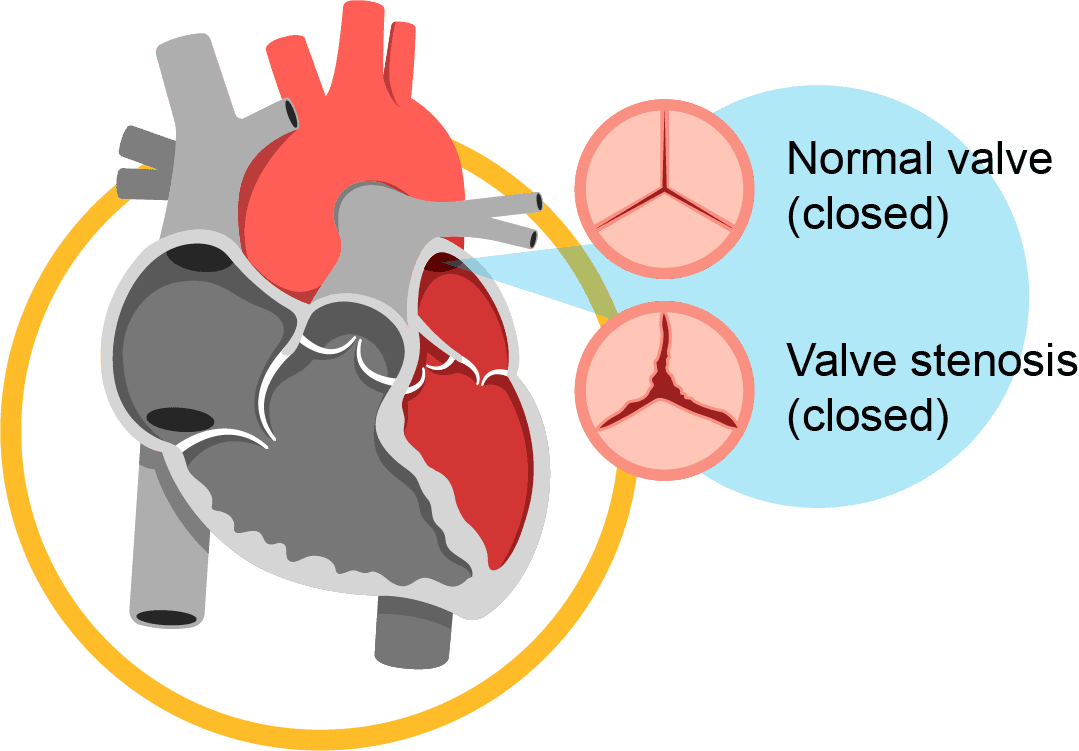What Causes It?
Congenital defects - Some people are born with abnormal heart valves or structures that impact valve function.
Age-related changes - As you age, heart valves can thicken, harden, or become less flexible, particularly the mitral and aortic valves.
Infections - Rheumatic fever, endocarditis, and other infections can damage heart valves.
Coronary artery disease or heart attacks - These can damage the muscles that control valve function.
High blood pressure or pulmonary hypertension - Prolonged high blood pressure can enlarge the heart and prevent valves from closing properly.
Connective tissue disorders - Conditions like Marfan syndrome can affect heart valve structure.
Signs & Symptoms
Heart murmur - An unusual sound heard through a stethoscope, caused by turbulent blood flow.
Shortness of breath - Especially during activity or when lying flat.
Chest pain - Pressure or tightness in the chest.
Fatigue - Feeling unusually tired, weak, or having less energy.
Swelling in ankles, feet, or abdomen - Due to fluid retention.
Dizziness or fainting - From reduced blood flow to the brain.
Irregular heartbeat - Palpitations or feeling like your heart is racing, fluttering, or skipping beats.
Reduced exercise capacity - Becoming easily exhausted during physical activity.
